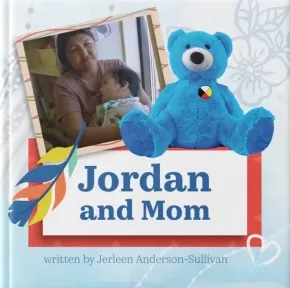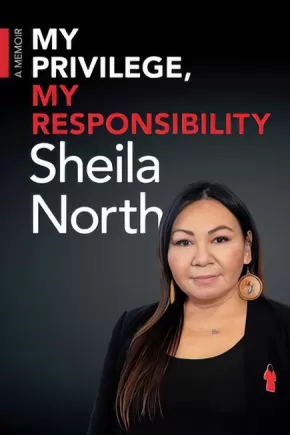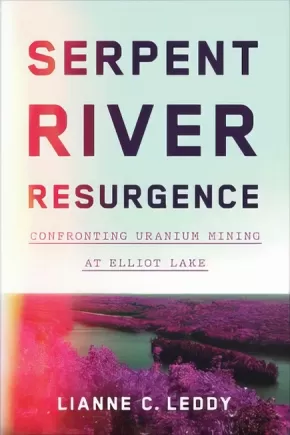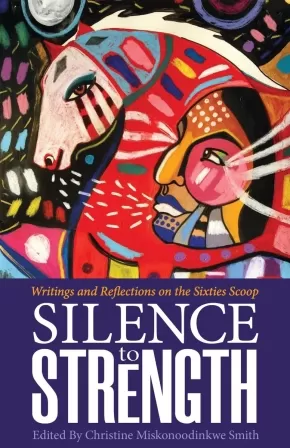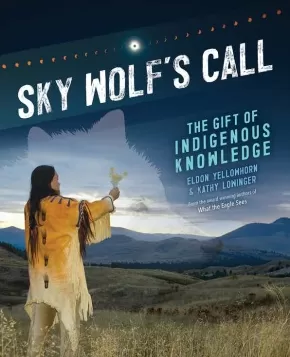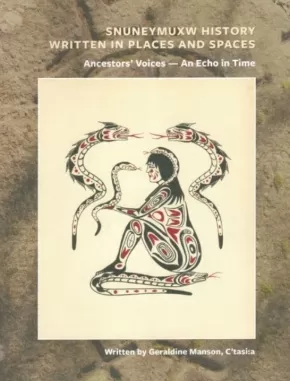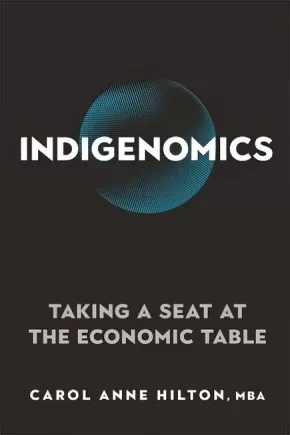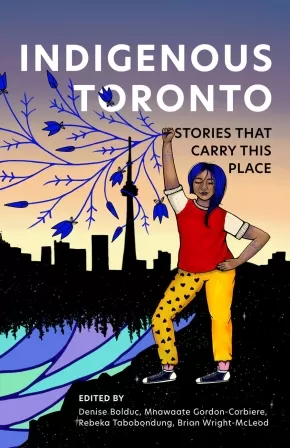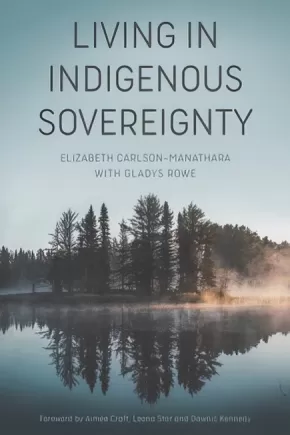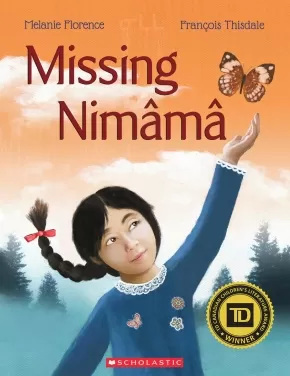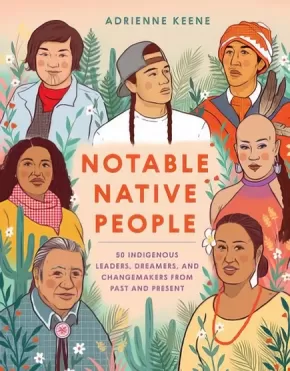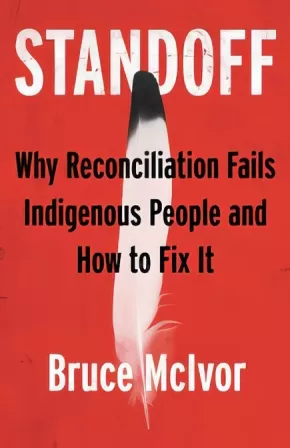
Indigenous Awareness
31
-
45
of
134 Results;
Sort By
Go To
of 9
Jordan and Mom
$14.99
Format:
Paperback
Text Content Territories:
Indigenous Canadian; First Nations; Cree (Nehiyawak); Swampy Cree ; Norway House Cree Nation;
Grade Levels: 8;
ISBN / Barcode: 9781990297533
Synopsis:
Synopsis:
Jerleen Sullivan Anderson from Norway House Cree Nation shares the story of her brother Jordan River Anderson and their Mom Virgina Anderson in her book Jordan and Mom.
Jerleen writes this book so that we can remember Jordan and the way he was treated as a First Nations child, with his serious health condition, by the governments of Manitoba and Canada. It is a book for us to learn and understand how Jordan’s Principle came about and that Jordan had a Mom and family who loved him dearly.
Educator Information
The publisher recommends this picture book for grades seven, eight, and nine.
Keywords / Themes: Jordan's Principle; Health; Family.
Additional Information
24 Pages | Paperback
My Privilege, My Responsibility: A Memoir
$24.95
Format:
Paperback
Text Content Territories:
Indigenous Canadian; First Nations; Cree (Nehiyawak); Woodland Cree; Rocky Cree; Bunibonibee Cree Nation ;
Reading Level: N/A
ISBN / Barcode: 9781773370668
Synopsis:
Synopsis:
In September 2015, Sheila North was declared the Grand Chief of Manitoba Keewatinowi Okimakanak (MKO), the first woman elected to the position. Known as a “bridge builder”, North is a member of Bunibonibee Cree Nation. North’s work in advocacy journalism, communications, and economic development harnessed her passion for drawing focus to systemic racism faced by Indigenous women and girls. She is the creator of the widely used hashtag #MMIW. In her memoir, Sheila North shares the stories of the events that shaped her, and the violence that nearly stood in the way of her achieving her dreams. Through perseverance and resilience, she not only survived, she flourished.
Additional Information
232 pages | 6.00" x 9.00" | Paperback
Righting Canada's Wrongs: The Sixties Scoop and the Stolen Lives of Indigenous Children
$34.95
Format:
Hardcover
Text Content Territories:
Indigenous Canadian;
ISBN / Barcode: 9781459416697
Synopsis:
Synopsis:
This book for students examines a child welfare policy in Canada that began in 1951 in which Indigenous children were taken from their homes and put into the care of non-Indigenous families. These children grew up without their birth families, cultural roots and language. Many tried to run away and some died in the attempt. The taking of the children became known as the Sixties Scoop. The term “Sixties Scoop” makes explicit reference to the 1960s, but the policies and practices started before the 1960s and lasted long after. Today, Indigenous children are over-represented in the Child Welfare System across Canada in shocking numbers.
Indigenous communities got organized and fought back for their children. In 1985, the Kimelman Report was released, condemning the practice of adopting Indigenous children into non-Indigenous families and for taking so many children out of their communities.
In the 1990s, lawsuits were filed against the governments who had supported taking the children. In 2018 and 2019, Alberta, Saskatchewan and Manitoba apologized for their roles in supporting the adoption programs. In 2020, the Canadian government agreed to a settlement for survivors of the Scoop.
Through hundreds of photos and primary documents, readers will meet many survivors of the Scoop. They’ll also learn how Indigenous communities fought back to save their children and won, and how Indigenous communities across Canada are working towards healing today.
Educator & Series Information
This book is part of the Righting Canada's Wrongs series.
Recommended for ages 13 to 18.
This book is available in French: La rafle des années 1960: et enfance volée aux jeunes Autochtones.
Additional Information
104 pages | 9.01" x 11.02" | 300 Photographs | Hardcover
Serpent River Resurgence: Confronting Uranium Mining at Elliot Lake
$29.95
Format:
Paperback
Text Content Territories:
Indigenous Canadian; First Nations; Anishinaabeg; Ojibway; Serpent River First Nation;
Reading Level: N/A
ISBN / Barcode: 9781442614376
Synopsis:
Synopsis:
Serpent River Resurgence tells the story of how the Serpent River Anishinaabek confronted the persistent forces of settler colonialism and the effects of uranium mining at Elliot Lake, Ontario. Drawing on extensive archival sources, oral histories, and newspaper articles, Lianne C. Leddy examines the environmental and political power relationships that affected her homeland in the Cold War period.
Focusing on Indigenous-settler relations, the environmental and health consequences of the uranium industry, and the importance of traditional uses of land and what happens when they are compromised, Serpent River Resurgence explores how settler colonialism and Anishinaabe resistance remained potent forces in Indigenous communities throughout the second half of the twentieth century.
Reviews
"Lianne C. Leddy’s book Serpent River Resurgence is a welcome addition to the conversation on mining and development in and around the Elliot Lake area. This is a must-read for any person wanting to engage in reconciliation and to understand that First Nations people have been on the frontlines of resource development and have suffered the consequences. This is a timely message for all in the era of reconciliation, and a reminder that First Nations communities have not always been properly consulted or made aware of the consequences, and have been at the whim of the Federal government. We must be reminded of our past relationships, and how we got to this point, and we need to hear the truth. This book brings to light some of the truths; it is a welcome addition to the conversation on reconciliation."— Chief Brent (Nodini’inini) Bissaillion, Chief of the Serpent River First Nation
"For anyone seeking to understand twentieth-century colonialism in Canada, this book offers a compelling on-the-ground story of resource extraction in Anishinaabek homelands. Lianne C. Leddy has done a superb job of tying together uranium demands for American weapons of war, mining boomtown development, and the rich history and culture of the Serpent River people. It is an antidote to settler narratives of progress and a vision of resilient people, land, and future."— Kim Anderson, Canada Research Chair in Indigenous Relationships and Associate Professor of Family Relations and Applied Nutrition, University of Guelph
"Serpent River Resurgence is a powerful community-based history of resilience and reclamation. Filling a critical gap in Indigenous history, Lianne C. Leddy demonstrates the impact of the global dynamics of settler colonialism during the Cold War while centring an impressive story of Indigenous resurgence."— Allan Downey, Nak'azdli Whut’en First Nation and Associate Professor of History and Indigenous Studies, McMaster University
"Of bicultural parentage, Leddy situates herself within this story as a member of both sides – Anishinaabe and Canadian. As an Indigenous environmental historian, Leddy explicates the enduring structures of settler colonialism, demonstrating that they are still in force today. To identify those structures, she adroitly deploys the words of her elders, countering their historic exclusion by inserting storytelling into her analysis, while critically approaching and analyzing bureaucratic reports and newspaper articles. A welcome and timely piece of scholarship."— Alan Ojiig Corbiere, Bne Doodem, Canada Research Chair, Indigenous History of North America, York University
"A brilliant analysis of uranium mining in Ontario which centres the lived experiences of Indigenous communities, particularly the Serpent River First Nation. Leddy explores deep-rooted Anishinaabe connections to a particular place, situating these conflicts within global processes of Cold War colonialism. Leddy argues that stories have been the foundation of Indigenous resurgence, and the stories she tells are compelling indeed."— Nancy Langston, Distinguished Professor of Environmental History, Michigan Technological University
Educator Information
Subjects: History / History of Science & Technology; History / Indigenous History; Indigenous Studies / Indigenous History; History / Canadian History; Environmental Studies
Table of Contents
Introduction
1. The Serpent River Anishinaabek before 1950
2. Carving a “Jewel in the Wilderness”: The Establishment of Elliot Lake
3. “It took all the trees”: The Cutler Acid Plant and Its Toxic Legacy
4. “We weren’t supposed to use that water at all!”: Uranium Mining and the
Serpent River
5. “Oooh yes, we all went up to Elliot to protest”: Resilience and Resistance at
Serpent River First Nation
Conclusion
Notes
Bibliography
Additional Information
248 pages | 6.00" x 9.00" | Paperback
Silence to Strength: Writings and Reflections on the 60s Scoop
$18.00
Editors:
Format:
Paperback
Text Content Territories:
Indigenous Canadian;
Grade Levels: 12; University/College;
ISBN / Barcode: 9781928120339
Synopsis:
Synopsis:
From the 1960s through the 1980s the Canadian Children's Aid Society engaged in a large-scale program of removing First Nations children from their families and communities and adopting them out to non-Indigenous families. This systemic abduction of untold thousands of children came to be known as the Sixties Scoop. The lasting disruption from the loss of family and culture is only now starting to be spoken of publicly, as are stories of strength and survivance.
In Silence to Strength: Writings and Reflections on the 60s Scoop, editor Christine Miskonoodinkwe Smith gathers together contributions from twenty Sixties Scoop survivors from across the territories of Canada. This anthology includes poems, stories and personal essays from contributors such as Alice McKay, D.B. McLeod, David Montgomery, Doreen Parenteau, Tylor Pennock, Terry Swan, Lisa Wilder, and many more. Courageous writings and reflections that prove there is strength in telling a story, and power in ending the silence of the past.
Reviews
"This is an excellent collection and I recommend it to all who are interested in learning the truth about Indigenous Peoples by reading what they have written, not what has been written about them by non-Indigenous writers. The striking cover art is by George Littlechild, also a survivor of the Sixties Scoop." - MariJo Moore
Additional Information
140 pages | 5.50" x 8.50" | Paperback
Sky Wolf's Call: The Gift of Indigenous Knowledge
$16.95
Format:
Paperback
Text Content Territories:
Indigenous Canadian; Indigenous American;
ISBN / Barcode: 9781773216294
Synopsis:
Synopsis:
From healing to astronomy to our connection to the natural world, the lessons from Indigenous knowledge inform our learning and practices today.
How do knowledge systems get passed down over generations? Through the knowledge inherited from their Elders and ancestors, Indigenous Peoples throughout North America have observed, practiced, experimented, and interacted with plants, animals, the sky, and the waters over millennia. Knowledge keepers have shared their wisdom with younger people through oral history, stories, ceremonies, and records that took many forms.
In Sky Wolf’s Call, award-winning author team of Eldon Yellowhorn and Kathy Lowinger reveal how Indigenous knowledge comes from centuries of practices, experiences, and ideas gathered by people who have a long history with the natural world. Indigenous knowledge is explored through the use of fire and water, the acquisition of food, the study of astronomy, and healing practices.
Reviews
"An authoritative tribute to Indigenous knowledge systems that's a must-have for every library and classroom." - Kirkus Reviews
“Sky Wolf’s Call has an astoundingly broad scope introducing Indigenous Traditional Ecological Knowledge (TEK) in North America from time immemorial to the current day … This fast paced celebration of Indigenous innovation and technology is riveting.” - The British Columbia Review
Educator Information
Interest Age: 11+
Grade: 6+
Reading Age: 11+
A Junior Library Guild Gold Standard Selection
Table of Contents
Author’s Note
1: Sky Wolf’s Call: The Gift of Indigenous Knowledge: Foundational ideas behind Indigenous Knowledge and the importance of retaining, maintaining, and learning this sacred knowledge.
2: Water Knowledge Ways: Water links us all and is sacred. Indigenous people have fought to protect the gift of water from harm, and the critical role it has played in transportation, agriculture, irrigation, and food.
3: Fire and Smoke Knowledge: Fire and smoke are great gifts, including the burning of tobacco. In sacred ceremonies, smoke connects our breath with the heavens. Fire cooks our food, helps grow our crops, and even keeps our waters clean. Cultural burns are used to benefit the land.
4: Indigenous Knowledge and Food Security: Sharing, growing, and receiving food with family, community, and visitors is both an honour and a tradition. By understanding the traditional practices of salmon fishing, clam gardens, planting and harvesting certain crops, or hunting buffalo, Indigenous Peoples have respected what Mother Earth has to offer.
5: Healing Knowledge Ways: The use of the medicine wheel and the sweat lodge have been used over centuries and still help sick and troubled people. Games such as lacrosse and chunkey have helped in building individual strength and community spirit. And braiding together Indigenous healing and western science has opened new learning opportunities.
6: Sky Knowledge: From the earliest Indigenous astronomers to modern astrophysicists, these sky watchers have studied the sacred gifts of the sky: the sun, moon, planets, and stars that have produced maps, calendars, beliefs about how to govern, and even directions for building homes.
7: Keeping the Knowledge: Indigenous People hold oral narratives in high esteem because that was the way knowledge passed from one generation to the next. People in North America recorded important events with symbols, pictographs (paintings), and petroglyphs (carvings). Language Keepers and Knowledge keepers are making sure that Indigenous knowledge is never forgotten.
8: Sky Wolf’s Call: Indigenous knowledge is based on the idea that this world is a gift. Understanding the idea of connections (the skies with the earth, people with animals, the practical with the spiritual) is an important lesson with the challenges of climate change, pandemics, and wars. The wisdom of Indigenous Knowledge can help the whole world.
Thanks and Acknowledgments
Glossary
Selected Reading
Sources and Contacts
Additional Information
120 pages | 7.50" x 9.25" | Paperback
Snuneymuxw History Written in Places and Spaces: Ancestors' Voices—An Echo in Time
$20.00
Format:
Paperback
Text Content Territories:
Indigenous Canadian; First Nations; Salish; Coast Salish; Snuneymuxw ;
ISBN / Barcode: n/a
Synopsis:
Synopsis:
This book explores the history and meaning behind petroglyphs on Gabriola Island.
From the author: "This booklet is dedicated to the Ancestors, for the legacy they left us, and to our Elders of Elders who continued to pass this knowledge down in the oral tradition."
All proceeds from the sale of this work are donated to youth programs.
Beyond the Orange Shirt Story
$19.99
Format:
Paperback
Text Content Territories:
Indigenous Canadian; First Nations; Salish; Interior Salish; Secwepemc (Shuswap); Stswecem'c Xgat'tem;
ISBN / Barcode: 9781989122754
Synopsis:
Synopsis:
Beyond the Orange Shirt Story: A collection of stories from family and friends of Phyllis Webstad - Before, during, and after their Residential School experiences.
Beyond the Orange Shirt Story is a unique collection of truths, as told by Phyllis Webstad's family and others, that will give readers an up-close look at what life was like before, during, and after their Residential School experiences. In this book, Survivors and Intergenerational Survivors share their stories authentically and in their own words. Phyllis Webstad is a Residential School Survivor and founder of the Orange Shirt Day movement. Phyllis has carefully selected stories to help Canadians educate themselves and gain a deeper understanding of the impacts of the Residential School System. Readers of this book will become more aware of a number of challenges faced by many Indigenous peoples in Canada. With this awareness comes learning and unlearning, understanding, acceptance, and change. Phyllis's hope is that all Canadians honour the lives and experiences of Survivors and their families as we go Beyond the Orange Shirt Story.
Educator Information
This book gives readers an up-close look at what life was like for many Survivors — before, during, and after their Residential School experiences. These personal Survivor accounts, relayed in a number of one on one interviews, are authentically shared in their own voices.
Young Adult Nonfiction (Ages 12+).
This book has a Teacher Lesson Plan: Beyond the Orange Shirt Story Teacher Lesson Plan
This book is available in French: Derrière l'histoire du chandail orange
Additional Information
100 pages | 5.50" x 8.50" | Paperback
Indigenomics: Taking a Seat at the Economic Table
$24.99
Format:
Paperback
Text Content Territories:
Indigenous Canadian;
Grade Levels: University/College;
ISBN / Barcode: 9780865719408
Synopsis:
Synopsis:
Igniting the $100 billion Indigenous economy
It is time. It is time to increase the visibility, role, and responsibility of the emerging modern Indigenous economy and the people involved. This is the foundation for economic reconciliation. This is Indigenomics.
Indigenomics lays out the tenets of the emerging Indigenous economy, built around relationships, multigenerational stewardship of resources, and care for all. Highlights include:
- The ongoing power shift and rise of the modern Indigenous economy
- Voices of leading Indigenous business leaders
- The unfolding story in the law courts that is testing Canada's relationship with Indigenous peoples
- Exposure of the false media narrative of Indigenous dependency
- A new narrative, rooted in the reality on the ground, that Indigenous peoples are economic powerhouses
- On the ground examples of the emerging Indigenous economy.
Indigenomics calls for a new model of development, one that advances Indigenous self-determination, collective well-being, and reconciliation. This is vital reading for business leaders and entrepreneurs, Indigenous organizations and nations, governments and policymakers, and economists.
Awards
- 2022 First Nations Community Reads Award
Educator Information
This book is centered within the United Nations Declaration on the Rights of Indigenous Peoples (UNDRIP).
Indigenomics is a new topic and a previously unpublished contribution to new economic thought.
This book is an important work in the emerging modern Indigenous economy. It is a guide to fully realizing the potential of the emerging Indigenous economy. It lays out the emerging power shift and rise of Indigenous economic empowerment. It acknowledges the unfolding story shaping Canada through the law courts that is testing the foundation of the Crown relationship with Indigenous peoples.
Includes interviews with six business leaders, all exceptional in their field.
Additional Information
272 pages | 6.00" x 9.00" | 20 b&w illustrations
Indigenous Toronto: Stories that Carry This Place
$24.95
Editors:
● Denise Bolduc (Indigenous Canadian; First Nations; Anishinaabeg; Ojibway; Batchewana;)
● Mnawaate Gordon-Corbiere (Indigenous Canadian; First Nations; Anishinaabeg; Ojibway; M'Chigeeng First Nation;)
● Rebeka Tabobondung (Indigenous Canadian; First Nations; Anishinaabeg; Wasauksing First Nation;)
 Show More ...
Show More ...
● Mnawaate Gordon-Corbiere (Indigenous Canadian; First Nations; Anishinaabeg; Ojibway; M'Chigeeng First Nation;)
● Rebeka Tabobondung (Indigenous Canadian; First Nations; Anishinaabeg; Wasauksing First Nation;)
Format:
Paperback
Text Content Territories:
Indigenous Canadian; First Nations; Anishinaabeg; Haudenosaunee (Iroquois); Huron-Wendat (Ouendat);
ISBN / Barcode: 9781552454152
Synopsis:
Synopsis:
A collection of perspectives by and about Indigenous Toronto, past, present, and future.
Beneath every major city in North America lies a deep and rich Indigenous history that has been colonized, paved over, and ignored. Few of its current inhabitants know that Toronto has seen 12,000 years of different peoples, including the Haudenosaunee, the Anishinaabe, the Huron-Wendat, and the Mississaugas of the New Credit, and a vibrant culture and history that thrives to this day.
With original contributions by Indigenous elders, scholars, journalists, artists, activists, and historians about art, food, health, and more, this unique anthology explores the poles of erasure and cultural continuity that have come to define a crossroads city-region that was known as a meeting place long before the arrival of European settlers.
Contributors include political scientist Hayden King, historian Alan Corbiere, musician Elaine Bomberry, artist Duke Redbird, playwright Drew Hayden Taylor, educator Kerry Potts, writer/journalist Paul Seesequasis and former Mississaugas of the New Credit chief Carolyn King.
Additional Information
192 pages | 5.50" x 8.50"
Living in Indigenous Sovereignty (10 in Stock) - ON SALE
$22.40 $32.00
Format:
Paperback
Text Content Territories:
Indigenous Canadian;
Grade Levels: 12; University/College;
ISBN / Barcode: 9781773632384
Synopsis:
Synopsis:
In the last decade, the relationship between settler Canadians and Indigenous Peoples has been highlighted by the Truth and Reconciliation Commission, the National Inquiry into Missing and Murdered Indigenous Women and Girls, the Idle No More movement, the Wet'suwet'en struggle against pipeline development and other Indigenous-led struggles for Indigenous sovereignty and decolonization. Increasing numbers of Canadians are beginning to recognize how settler colonialism continues to shape relationships on these lands. With this recognition comes the question many settler Canadians are now asking, what can I do?
Living in Indigenous Sovereignty lifts up the wisdom of Indigenous scholars, activists and knowledge keepers who speak pointedly to what they are asking of non-Indigenous people. It also shares the experiences of thirteen white settler Canadians who are deeply engaged in solidarity work with Indigenous Peoples. Together, these stories offer inspiration and guidance for settler Canadians who wish to live honourably in relationship with Indigenous Peoples, laws and lands. If Canadians truly want to achieve this goal, Carlson and Rowe argue, they will pursue a reorientation of their lives toward "living in Indigenous sovereignty"-- living in an awareness that these are Indigenous lands, containing relationships, laws, protocols, stories, obligations and opportunities that have been understood and practised by Indigenous peoples since time immemorial.
Collectively, these stories will help settler Canadians understand what transformations we must undertake if we are to fundamentally shift our current relations and find a new way forward, together.
Reviews
“A powerful decolonial reflection and call to action for settler peoples to learn how to work in solidarity with Indigenous peoples in ways that are decolonizing not recolonizing. Guided by teachings from Indigenous elders, scholars, and activists about the importance of creating relationships with kindness, humility, mutual respect and reciprocity, non-Indigenous readers can find inspiration in the life stories of settlers who speak frankly about their ongoing struggles to do this work in a good way.” — Paulette Regan, author of Unsettling the Settler Within: Indian Residential Schools, Truth Telling, and Reconciliation in Canada and Senior Researcher/Lead Writer of “Reconciliation,” Volume 6 of the TRC Final Report
“This is the most comprehensive book on anti-colonial practice focused on non-indigenous peoples. It draws on leading scholars and advocates from across the country and incorporates a breadth of concepts that create a solid and encompassing foundation for creating change. By incorporating these ideas, perspectives, experiences and practices, non-Indigenous and Indigenous people will be well prepared for our work and parallel journey ahead.” — Michael Anthony Hart, Vice Provost (Indigenous Engagement), Professor, Faculty of Social Work, University of Calgary, author of Seeking Mino-Pimatisiwin and Wicihitowin
Educator Information
Tables of Contents
Foreword By Aimée Craft, Leona Star and Dawnis Kennedy
Acknowledgments
Introductions
Settler Colonialism and Resistance
Introducing the Narratives
Monique Woroniak
Murray Angus
Steve Heinrichs
Franklin Jones
Orienting Toward Indigenous Sovereignty
Joy Eidse
Adam Barker
Susanne McCrea
Kathi Avery Kinew
Rick Wallace
What Indigenous Peoples Have Asked of Us
John Doe
Silvia Straka
Dave Bleakney
Victoria Freeman
Honourings
Conclusions
Afterword
References
Index
Additional Information
264 pages | 6.00" x 9.00"
Missing Nimâmâ
$8.99
Artists:
Format:
Hardcover
Text Content Territories:
Indigenous Canadian; First Nations; Cree (Nehiyawak);
ISBN / Barcode: 9781039708181
Synopsis:
Synopsis:
A beautiful, transcendent story of a mother-daughter connection that persists through tragedy and across time.
Kateri is a young Cree girl, growing up in the care of her grandmother. We see her reaching important milestones: her first day of school, first dance, first date, wedding, first child. Her mother is absent, but not gone, watching her child growing up without her.
Told in alternating voices of child and mother, Missing Nimâmâ is a story of love, loss, and acceptance, showing the human side of a national tragedy. Dreamlike illustrations by François Thisdale enrich Kateri’s emotional journey. An afterword by the author provides a simple, age-appropriate context for young readers. Includes Cree words and glossary.
Reviews
"A free-verse intergenerational story of separation, loss, and daughter-mother connection amid the ongoing crisis of missing First Nations girls and women. . . On each page, Cree author Florence presents two narratives: Kateri's and her missing nimâmâ's. By juxtaposing the daughter's and mother's thoughts and feelings in complementary verse, Florence provides them the opportunity to experience life together from their respective points of view and to talk to each other from a distance. Thisdale's soft-edged, wistful artwork enriches the heartfelt story, strongly capturing the passage of time and Kateri's emotional journey. An afterword is appended, offering simple and relevant information as well as statistics of missing and murdered indigenous girls and women; together with the story, it should help to begin a conversation with young readers. A solid debut picture book that works as a record of voices that are usually unheard, ignored, and forgotten." — Kirkus Reviews
"A touching story related from the point of view of a missing indigenous woman as she watches her daughter grow up without her."— Quill and Quire
Awards
- TD Canadian Children's Literature Award Winner
Educator Information
This is a picture book best suited for more mature readers, as it deals with mature themes and subject matter. It's best used for a read-aloud due to its subject matter and theme of loss. This book is not recommended as an independent read for younger ages.
Additional Information
32 pages | 8.50" x 11.00"
Notable Native People: 50 Indigenous Leaders, Dreamers, and Changemakers from Past and Present
$24.99
Artists:
Format:
Hardcover
Text Content Territories:
Indigenous American; Alaska Native; Native American; Indigenous Hawaiian;
ISBN / Barcode: 9781984857941
Synopsis:
Synopsis:
An accessible and educational illustrated book profiling 50 notable American Indian, Alaska Native, and Native Hawaiian people, from NBA star Kyrie Irving of the Standing Rock Lakota to Wilma Mankiller, the first female principal chief of the Cherokee Nation
Celebrate the lives, stories, and contributions of Indigenous artists, activists, scientists, athletes, and other changemakers in this beautifully illustrated collection. From luminaries of the past, like nineteenth-century sculptor Edmonia Lewis—the first Black and Native American female artist to achieve international fame—to contemporary figures like linguist jessie little doe baird, who revived the Wampanoag language, Notable Native People highlights the vital impact Indigenous dreamers and leaders have made on the world.
This powerful and informative collection also offers accessible primers on important Indigenous issues, from the legacy of colonialism and cultural appropriation to food sovereignty, land and water rights, and more. An indispensable read for people of all backgrounds seeking to learn about Native American heritage, histories, and cultures, Notable Native People will educate and inspire readers of all ages.
Additional Information
144 pages | 7.26" x 9.29" | Hardcover
Orange Shirt Day Book Package
$92.99
Artists:
Text Content Territories:
Indigenous Canadian; First Nations; Salish; Interior Salish; Secwepemc (Shuswap); Stswecem'c Xgat'tem;
ISBN / Barcode: 9781989122808
Synopsis:
Synopsis:
A collection of authentic Orange Shirt Day books from the founder of the Orange Shirt Day movement, Phyllis Webstad. Package includes four books and three accompanying lesson plans, The Orange Shirt Story, Phyllis's Orange Shirt, Orange Shirt Day and Beyond the Orange Shirt Story.
Educator Information
Includes picture books for children, as well as books for young adults. Review individual titles for more information about each include:
Additional Information
9.00" x 12.00"
Standoff: Why Reconciliation Fails Indigenous People and How to Fix It
$21.95
Format:
Paperback
Text Content Territories:
Indigenous Canadian;
Grade Levels: University/College;
ISBN / Barcode: 9780889714205
Synopsis:
Synopsis:
Faced with a constant stream of news reports of standoffs and confrontations, Canada’s “reconciliation project” has obviously gone off the rails. In this series of concise and thoughtful essays, lawyer and historian Bruce McIvor explains why reconciliation with Indigenous peoples is failing and what needs to be done to fix it.
Widely known as a passionate advocate for Indigenous rights, McIvor reports from the front lines of legal and political disputes that have gripped the nation. From Wet’suwet’en opposition to a pipeline in northern British Columbia, to Mi’kmaw exercising their fishing rights in Nova Scotia, McIvor has been actively involved in advising First Nation clients, fielding industry and non-Indigenous opposition to true reconciliation, and explaining to government officials why their policies are failing.
McIvor’s essays are honest and heartfelt. In clear, plain language he explains the historical and social forces that underpin the development of Indigenous law, criticizes the current legal shortcomings and charts a practical, principled way forward.
By weaving in personal stories of growing up Métis on the fringes of the Peguis First Nation in Manitoba and representing First Nations in court and negotiations, McIvor brings to life the human side of the law and politics surrounding Indigenous peoples’ ongoing struggle for fairness and justice. His writing covers many of the most important issues that have become part of a national dialogue, including systemic racism, treaty rights, violence against Indigenous people, Métis identity, the United Nations Declaration on the Rights of Indigenous People (UNDRIP) and the duty to consult.
McIvor’s message is consistent and powerful: if Canadians are brave enough to confront the reality of the country’s colonialist past and present and insist that politicians replace empty promises with concrete, meaningful change, there is a realistic path forward based on respect, recognition and the implementation of Indigenous rights.
Additional Information
208 pages | 5.50" x 8.50" | Paperback
Sort By
Go To
of 9

